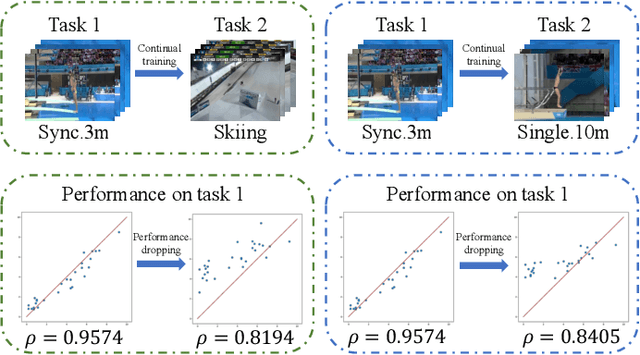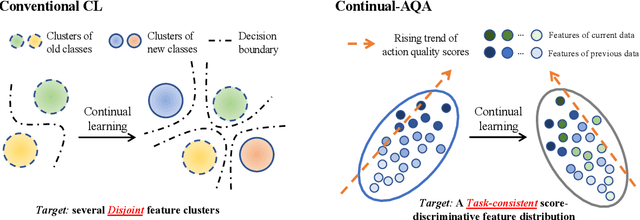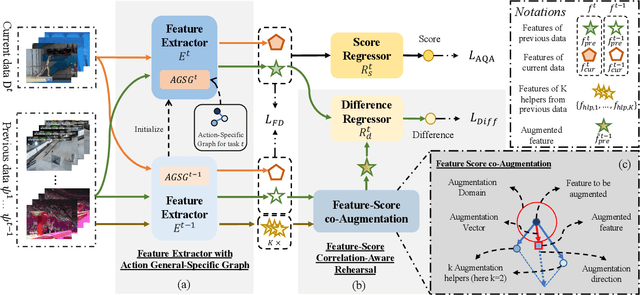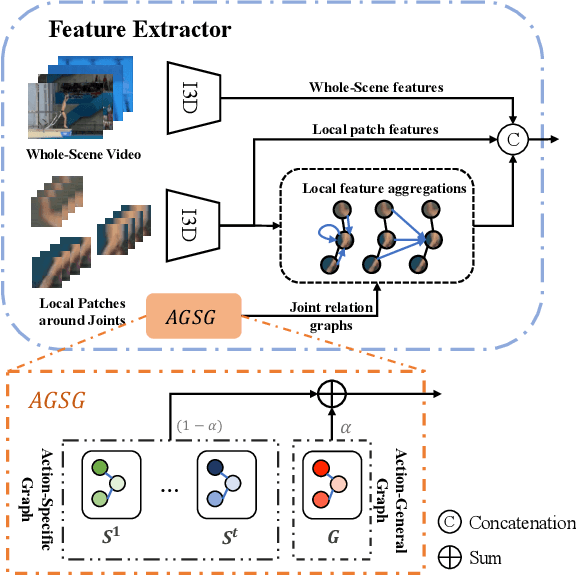Jing-Ke Meng
EgoExo-Fitness: Towards Egocentric and Exocentric Full-Body Action Understanding
Jun 13, 2024Abstract:We present EgoExo-Fitness, a new full-body action understanding dataset, featuring fitness sequence videos recorded from synchronized egocentric and fixed exocentric (third-person) cameras. Compared with existing full-body action understanding datasets, EgoExo-Fitness not only contains videos from first-person perspectives, but also provides rich annotations. Specifically, two-level temporal boundaries are provided to localize single action videos along with sub-steps of each action. More importantly, EgoExo-Fitness introduces innovative annotations for interpretable action judgement--including technical keypoint verification, natural language comments on action execution, and action quality scores. Combining all of these, EgoExo-Fitness provides new resources to study egocentric and exocentric full-body action understanding across dimensions of "what", "when", and "how well". To facilitate research on egocentric and exocentric full-body action understanding, we construct benchmarks on a suite of tasks (i.e., action classification, action localization, cross-view sequence verification, cross-view skill determination, and a newly proposed task of guidance-based execution verification), together with detailed analysis. Code and data will be available at https://github.com/iSEE-Laboratory/EgoExo-Fitness/tree/main.
Continual Action Assessment via Task-Consistent Score-Discriminative Feature Distribution Modeling
Sep 29, 2023



Abstract:Action Quality Assessment (AQA) is a task that tries to answer how well an action is carried out. While remarkable progress has been achieved, existing works on AQA assume that all the training data are visible for training in one time, but do not enable continual learning on assessing new technical actions. In this work, we address such a Continual Learning problem in AQA (Continual-AQA), which urges a unified model to learn AQA tasks sequentially without forgetting. Our idea for modeling Continual-AQA is to sequentially learn a task-consistent score-discriminative feature distribution, in which the latent features express a strong correlation with the score labels regardless of the task or action types. From this perspective, we aim to mitigate the forgetting in Continual-AQA from two aspects. Firstly, to fuse the features of new and previous data into a score-discriminative distribution, a novel Feature-Score Correlation-Aware Rehearsal is proposed to store and reuse data from previous tasks with limited memory size. Secondly, an Action General-Specific Graph is developed to learn and decouple the action-general and action-specific knowledge so that the task-consistent score-discriminative features can be better extracted across various tasks. Extensive experiments are conducted to evaluate the contributions of proposed components. The comparisons with the existing continual learning methods additionally verify the effectiveness and versatility of our approach.
 Add to Chrome
Add to Chrome Add to Firefox
Add to Firefox Add to Edge
Add to Edge